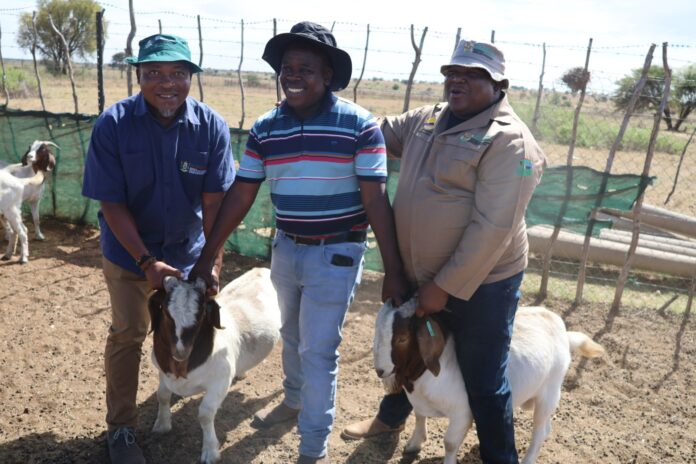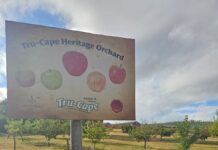
In efforts to boost Goat Production in the province, the North West Department of
Agriculture and Rural Development through their Goat Massification Programme, handed over forty-five (45) goats to Mr Solomon Lethoko of Prospect Farm in Christiana, Lekwa Teemane Local Municipality as part of the weekly Provincial Accelerated Service Delivery Program, Thuntsha Lerole.
The Massification programme focuses on the commercialization of goats to steer and constitute a significant contribution of rural livestock with the potential to alleviate poverty through the sale of meat, skins, crafts and milk products. Goats are generally an easy-care animal because of their small size, adaptive feeding behaviour and low management, it is much easier for small farmers with no land or a small portion of land to farm with goats than with cattle, as 10 goats could be kept on the same portion of land as one cattle.
The Head of Department, Mr Thupi Mokhatla elaborated that the farmers must see their goats as a source of income to commercialize the goat industry. The main advantage of goats is their resistance to diseases and their adaptability to harsh grazing conditions. “Goats are a practical choice in promoting the household cash flow of people in rural areas and can help resolve food insecurity for many households,” said Mokhatla.
The support to the farmer included 43 Does and 2 Bucks, a small-stock handling facility (still under construction), water provision, breeding stock, feeds and medication.
Mr Solomon Lethoko who is pleased with his goat donation and the construction of the handling facilities expressed his gratitude for the empowerment he has received. “The facilities will help reduce stress on the goats and aid in vaccinating, deworming, weighing and the sorting process, which will give me an advantage when selling at auctions,” said beaming Solomon.
Lethoko indicated that he has some experience with livestock production. He goes to auctions to buy goats and sheep to fatten and sell them back at different auctions. He indicated that he was also taking advantage of the informal trading. ‘The majority of goats marketed in the province are sold by private transactions in the informal market to be slaughtered for religious or traditional purposes, therefore the informal market drives the goat industry,” he quipped.







